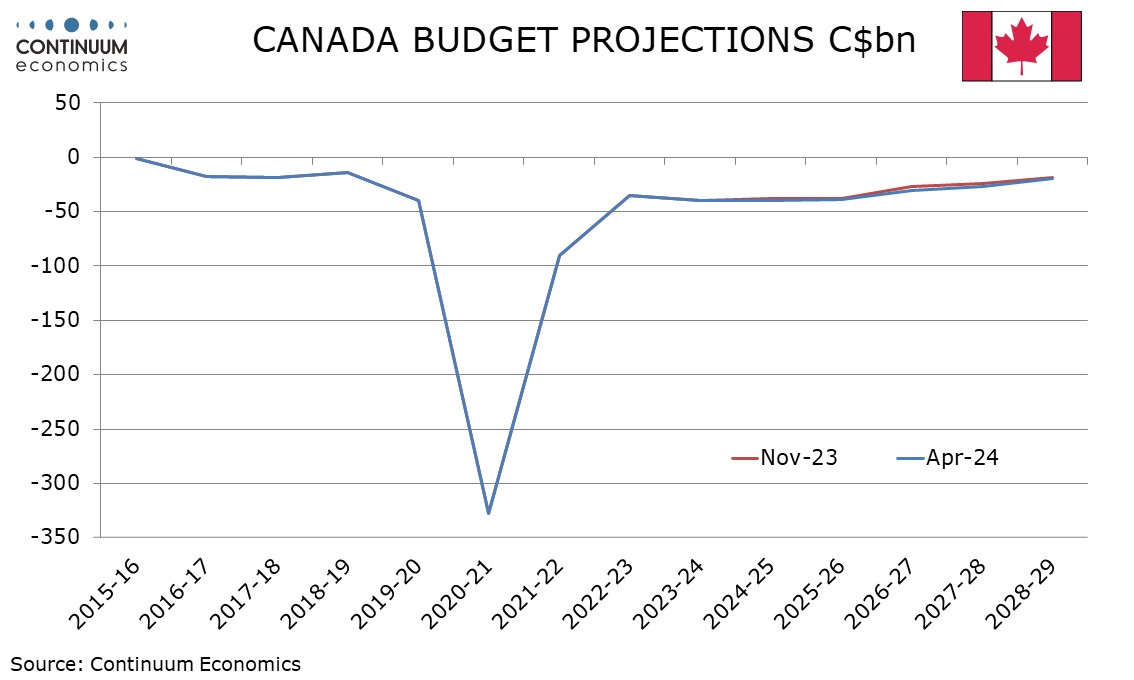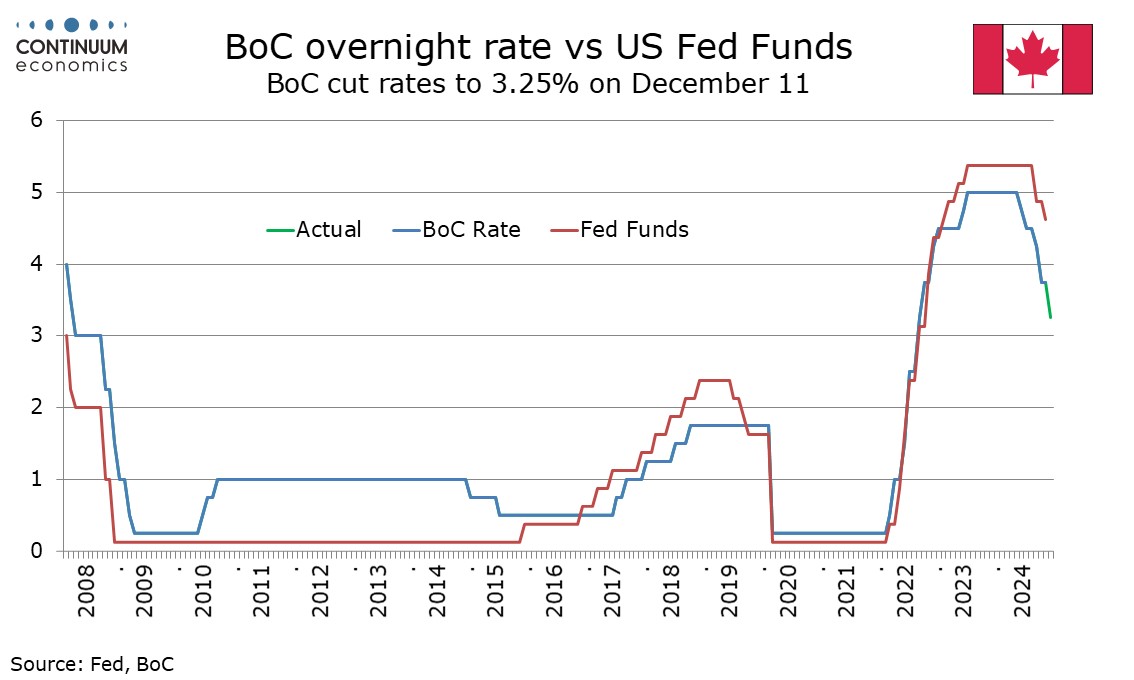Trump Tariff Threats Causing Policy Division in Canada
Trump’s tariff threats are being felt in Canadian politics, with Finance Minister Chrystia Freeland’s resignation, due to disagreements with Prime Minister Justin Trudeau’s plans to give the economy fiscal support, with Freeland preferring to “keep the powder dry” given the risks Canada faces from potential tariffs on exports to the USA.
Canada’s economy is clearly growing below potential, with unemployment now standing at 6.8%, compared to 5.0% less than two years ago, and Canada’s budget deficit, seen at 1.2% of GDP, is well below those in most developed countries, in particular the United States at 6.8% of GDP. With the spread with the Fed Funds rate having risen sharply, the scope for further Bank of Canada easing may be limited, adding to the case for fiscal stimulus. Canada has already announced a temporary suspension of the GST over the holiday period and Trudeau is seeking to provide checks to the majority of Canadians to further stimulate consumer spending.

However, Freeland in her resignation letter states that fiscal power should be kept dry today so that Canada has reserves for an upcoming trade war. In calling for Canada to eschew costly gimmicks and for a Team Canada response (working with the provinces) to Trump’s threats, she appears to be harshly criticizing Trudeau’s stance. Freeland adds that how it responds to the threats could define Canada for a generation, which may be a hint that Trudeau should be less focused on an election due in 2025, with the ruling Liberals currently well behind the opposition Conservatives in the polls.

The resignation comes with the fall fiscal update due later today. Early losses in the CAD have been corrected as the USD lost ground generally, but Canadian bond yields are higher, with Freeland’s departure leading some to expect a more stimulative fiscal policy. However, her resignation may well undermine any political benefit Trudeau gets from fiscal stimulus, and even his ability to provide it.